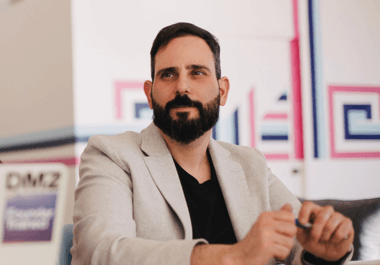
Health Secretary Jeremy Hunt has set the NHS the target of becoming paperless by 2018 to save £billions, improve services, and help meet the challenges of an ageing population. Here Civica General Manager of Health in the Information and Engagement Solutions, Paul Sanders, tells BiP Solutions journalist, Gemma Gaughan, how Cervica has worked towards these goals with County Durham and Darlington NHS Foundation Trust.
In 2013 Jeremy Hunt set the NHS the target of offering everyone online access to their own GP health records; adopting paperless patient referrals to hospitals; planning secure linking of electronic health and care records; planning for those records to be able to follow individuals to any part of the NHS or social care system; and enabling digital information to be fully available across NHS and social care organisations, barring any individual opt-outs (by 2018).
One authority that has begun to make such changes is County Durham and Darlington NHS Foundation Trust. In January 2013, the Trust announced a partnership with Civica, a specialist systems provider, to transform the way it worked.
Explaining the Trust’s Electronic Document Management solution, Paul Sanders, General Manager of Health in the Information and Engagement Solutions team at Civica, said: “A patient attends; a third party scans the patient records on demand, and the scanned images are then fed into the solution, WinDip.
“The consultant will access WinDip and the right information will be displayed at the right time, allowing them to deliver their care from a clinical system rather than reams of paper, which they used to do.”
Although paperless systems are easy to use, they are not so easy to secure. As Mr Sanders explained, a paperless system must safeguard data from unauthorised individuals.
He said: “Within Civica, we have an ex-NHS clinical safety officer, who advises us about standards; as well as an encryption process for our files.”
Although time- and cost-consuming, Mr Sanders explained that going paperless has long-term benefits for the NHS.
He said: “There are operational efficiencies and improved productivities. There’s an element of cancelled appointments and attendances through notes not being available – whereas now anyone with the right access permission can access records.
“This brings opportunities to redeploy staff or make staff savings around those who would be involved in the traditional way in which records are stored.”
He continued: “Non-financially, patient care can be improved. We have an iPad-based solution, meaning that staff can interact with patients in a different way rather than going through loads of paper. There’s much more from a patient experience, safety and efficiencies perspective. The benefits are not all financially driven.”
While Mr Sanders’ team works with over 60 NHS Trusts, he explained that, across the company as a whole, Civica works with around 400 health and social care providers throughout the NHS.
The next few years should see more and more NHS Trusts implementing tools and solutions as part of their IT strategies with the main goal of being paperless by 2018.
This will involve a lot of change management and process change within the NHS and the individual Trusts. Partnerships with external companies will be integral to the implementation of the strategy, so there will be plenty of opportunities for companies in this sector to win business. It is a long process to revolutionise the NHS and to make it completely paperless, but it seems that many Trusts have begun the shift.
Mr Sanders concluded: “It’s an optimistic and demanding aspiration but you can clearly see it is high on many Trusts’ agendas with many of them either implementing these solutions or thinking about doing so. I think ultimately it’ll be a ‘paperlite’ NHS rather than paperless.
“Regardless of whether the 2018 deadline is hit, I think without doubt we are going to see an upsurge in Trusts implementing these solutions.”
For further advice on public sector procurement, keep following the BiP blog…



